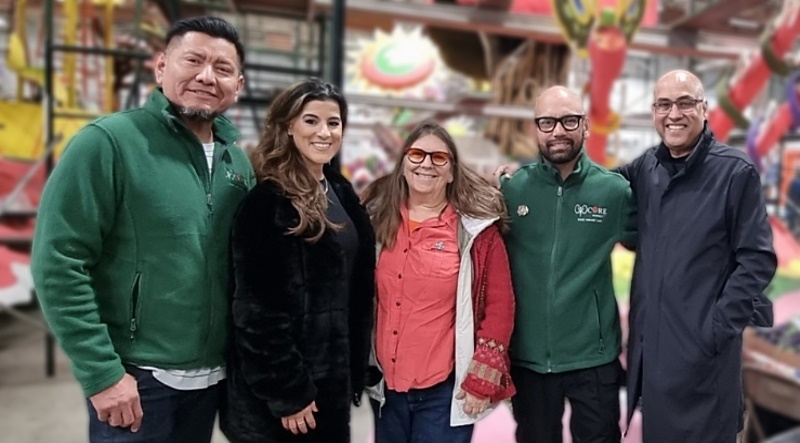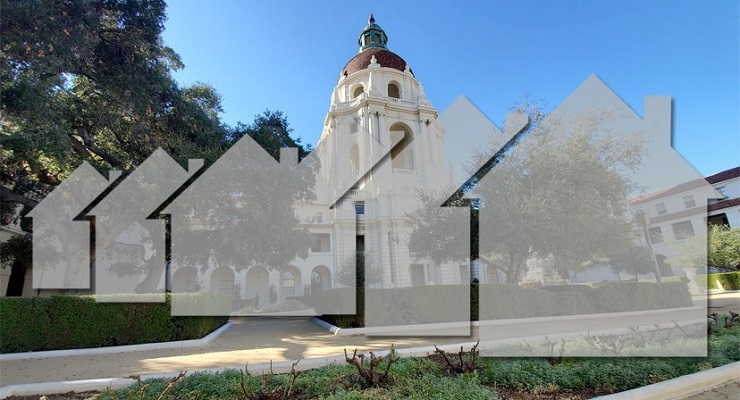
(Left to right) Gerald Melendez (a kidney recipient), Nicole Rodrigues, Judy Chase (a kidney donor), Marc Coronel (a kidney recipient), and Dr. Anjyay Rastogi pose before the 2024 CORE Kidney Rose Parade, under construction. [Therese Edu/Pasadena Now]
CORE Kidney, a patient support and advocacy group, will make its debut in the 2024 Tournament of Roses Parade in Pasadena with a specially designed kidney-shaped float aiming to honor living kidney donors and spread awareness for kidney health screening.
CORE Kidney is a program under UCLA Health composed of multiple sub-organizations that work to support the program itself as well as patients and professionals. The program aims to spread awareness on kidney disease, and provide resources for all: patients, doctors, and the general public.

Hummingbirds are seen as spiritual guides who bring healing to the suffering in native cultures. The green ribbon is a symbol of kidney health, a callback to the Green Ribbon Campaign started in 2016 by CORE Kidney that raised awareness for kidney health. Butterflies represent transformation and rebirth, with purple butterflies also representing lupus nephritis. The tree represents both life and knowledge.
Kidney disease, one of the top 10 causes of death in the U.S., affects more than 1 in 7 American adults – an estimated 37 million people overall. Despite being the fastest-growing non-communicable disease in the U.S., it often goes undetected. Nine out of 10 people with kidney disease are unaware they have it, as symptoms often don’t show up until the late stages.
“Inspired by the patient advocacy of Dr. Anjay Rastogi, Professor and Clinical Chief of Nephrology at UCLA Health, we thought a lot about how to bring kidney health awareness to a global stage, and the Rose Parade made perfect sense,” Dr. Rick Zumwalt, a neuropsychologist and chair of the CORE Rose Parade Committee, said.
Zumwalt added that kidney disease is “perhaps the most fatal disease that goes undiagnosed and undiscussed in this country.
“We need to encourage people to start prioritizing their kidney health,” he said. “The earlier we detect irregularities, the better we can treat the disease and the more lives will be saved.”
Living kidney donation has saved hundreds of thousands of lives across the globe. Yet, in the U.S., the waiting period for a new kidney is increasingly long – taking anywhere from two to eight years.
Patient ambassadors and supporters of CORE Kidney have established a non-profit organization called Circle of CORE Kidney Foundation, whose sole purpose is to support the UCLA Health CORE Kidney Program so they can host events that help promote patient care and research.
Core Kidney also conducts clinical research trials, where patients of kidney disease can enrol. The overall goal of CORE Kidney is to help patients become their own advocates.
For more information, visit https://corekidneyfoundation.org/.














 2 comments
2 comments


